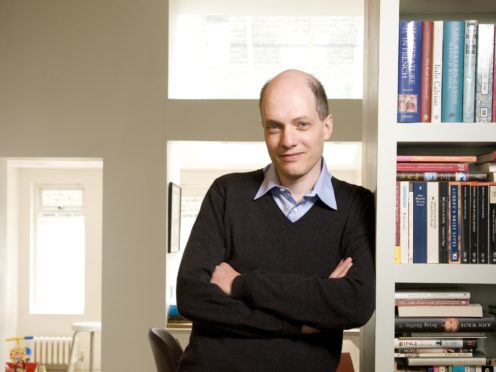Philosopher Alain de Botton has praised the younger generation of YouTube stars and influencers for being “self-motivated educators”.
De Botton – the founder of The School of Life, an educational company that offers advice on life issues – also said that, while social media has been demonised in terms of mental health, the communication it allows can actually be beneficial to people who experience issues such as anxiety.
He narrates the new YouTube Originals series The School Of…, which sees some of the platform’s most popular stars and creators – including British grime star Lady Leshurr, The Martinez Twins and Hannah Stocking – explore some of the “greatest philosophical questions of our age” in a series of bite-sized, playful films.
Defending the internet stars and others in their generation, de Botton told the PA news agency: “What’s been really fascinating is how these people are self-motivated educators.
“They might not have a standard education but fling a big book at them and they’ll go and read it, they’ll take it in.
“I think the older generation believes in a standardised model of education, and it’s like, if you want to be a so-called ‘clever person’ you’ve got to enrol at a certain kind of university and you’ve got to have a certain kind of grades, otherwise you’re nothing.
“And this younger generation are like, ‘Look, give me knowledge, whatever form it comes from. It could be in a YouTube film, it could be on a blog, it could be an old fashioned text book, I don’t care what it is, and I don’t care whether it’s from a professor or some guy I met at the beach’.
“It’s a proper democracy of learning. It’s very humbling and it is the future, because traditional education in many ways has been arrogant about what it costs, what it can bring, and now there’s a real thirst and hunger for knowledge, but knowledge that is going to fit in with people’s lives.”

The series, which marks a partnership between de Botton’s School Of Life philosophy channel and YouTube stars, includes standalone short films investigating topics such as happiness, anxiety, arranged relationships, the dangers of democracy and greed.
In time for World Mental Health Day on October 10, the first two episodes have been released with themes around mental health.
Episode one stars Jessica Kellgren-Fozard – a deaf YouTuber who raises awareness of issues surrounding disability and LGBTQ+ matters on her platform – who explores the secrets to happiness.
The Martinez Twins, who rose to fame online through their association with major YouTube star Jake Paul, front the second episode entitled Can We Stop Being Anxious About Being Anxious?.
With social media largely being blamed for the increase in anxiety in recent years, de Botton said that it should really be praised for raising awareness of mental health issues.

He said that people find “consolation” when realising they are not alone in dealing with a particular problem.
He said: “Take anxiety, which is the number one mental health issue… there’s lots of approaches you could take to anxiety, but the simplest thing to do that will bring somebody’s anxiety level down is to show them and demonstrate to them that they are not alone, that their anxiety is mirrored by the anxiety of somebody else.
“Support groups and psychologists have always known this, they’ve always known that if you have somebody who’s suffering from something – maybe they’re bereaved, maybe they’re depressed, maybe they’re suffering from impostor syndrome – put them in a room with other people who worry about the same thing, and far from making it worse, it will actually do that thing which makes everyone feel immediately better, which is a sense that you are not abnormal for suffering intensely.
“This has been the giant lesson of increased communication, and social media.”
